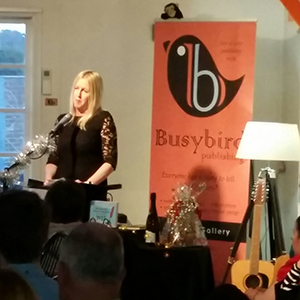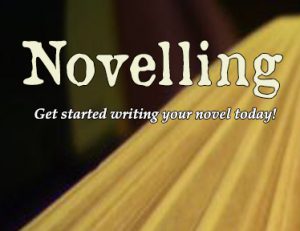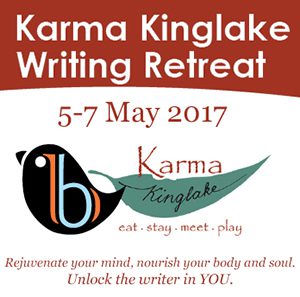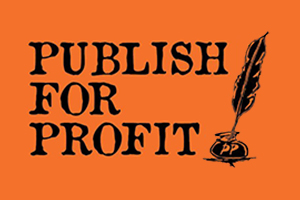

Blog
Welcome to the Busybird blog, where you can find helpful articles, updates, industry news and more. Make sure you stay up to date by signing up to our newsletter below.
Good Enough
February 16, 2017 French author and poet, Paul Valéry, is quoted as saying, ‘A poem is never finished, only abandoned.’ Filmmaker and creator of Star Wars, George Lucas, cannibalised this quote to say, ‘A movie is never finished, only abandoned.’ In fact, it’s a quote you could apply to any form of writing.
French author and poet, Paul Valéry, is quoted as saying, ‘A poem is never finished, only abandoned.’ Filmmaker and creator of Star Wars, George Lucas, cannibalised this quote to say, ‘A movie is never finished, only abandoned.’ In fact, it’s a quote you could apply to any form of writing.
So what does it mean?
Any writer will have suffered from the malaise of just wanting to give their poem/story/novel/screenplay/article, etc., just one more pass. Is the content as good as it can be? Or does it sag in that one area? Is it perhaps a little bloated in another? Is the phrasing in that passage right? The questions are endless. As are the insecurities.
Given the opportunity, we will tweak endlessly, striving to find perfection, but always doubting ourselves, always questioning the result, always wondering if we can do it a little better.
Ultimately, it can become an exercise in futility because art is subjective. We all have different tastes. I might enjoy the grandeur and depth of Lord of the Rings. You might find it overblown. I might dislike the sparseness of Cormac McCarthy’s prose. You might love that it’s simple and precise. We will never be able to please everybody, least of all our toughest critic – ourselves.
Compounding this is that we’re always learning, we’re always evolving. Look at something you wrote one year ago. How have your skills changed since then? And tastes? How would you write that piece today? You’d likely think you’d do it better. It definitely would be different – anybody who’s written something, lost it through some misfortune (e.g. a computer crash) and had to do it again would know they’re never going to write it the same way.
It’s this doubt and obsessiveness that compels us to pursue excellence, but at some point we do need to let go. Failing perfection, the best we can do is attain a standard of ‘good enough’. Is it good enough to be let loose into the world? Is it good enough to survive scrutiny? Is it good enough to connect with an audience?
This doesn’t mean we can be slipshod. Ask any bestselling author, and I’m sure they’d love just one more pass at a book, even if it’s critically acclaimed and selling well. It’s this drive (for perfection) that’s contributed to their success. We might shudder to learn what their qualification of ‘good enough’ is. They would never release anything to its next stage of development before they felt it was ready – until they felt it was good enough for that level.
That’s important to consider: that there are stages in a piece’s development. And each comes with its own parameters, e.g. you wouldn’t submit a first draft to a publisher, knowing that it’s a mess that needs some revision. It’s important to identify what your expectations are, and what you hope to accomplish with each step.
So good enough doesn’t mean so-so. It means as good as you can get it. Strive. Reach. Fight. Do the very best you can. And once you have, once that’s done, we do have to learn to let go, and trust that what we’re sending out into the world will be able to speak for itself.
Common Structural Problems
February 2, 2017 This week, we’re going to take a look at some of the structural issues that commonly mar early drafts.
This week, we’re going to take a look at some of the structural issues that commonly mar early drafts.
Story doesn’t start in the right place
When you first sit down to write – and especially with a longer work – it’s often a feeling-out process. You might have planned out your story, but you’re still finding your way in and meeting your characters, locations, and the circumstances. Sometimes, that shows, and what you offer the reader is a travelogue, instead of narrative that’s moving the story forward. Guess what? That’s all choppable!
Be brutally honest when you look at your opening. It might be beautifully written, but is it serving the story?
It’s underwritten, or there are sections that are underwritten
Too many people love the juicy bits in the story, but they don’t do justice to the journey. They hurry through it. So things that might be interesting end up underdeveloped.
For example, consider this: your protagonist is going to tell their partner they’ve been cheating. You’d want to jump right into that scene, right? Into the screaming and shouting and things being thrown around? So you hurry through your protagonist coming home. But isn’t there something interesting in that build-up? Wouldn’t the protagonist consider what the relationship has meant to them? Wouldn’t there be a cool scene where they’re just sitting in the car, parked in the drive, summoning the nerve to make this admission? Wouldn’t this be compelling to see?
Think about the scenes you’re skimming through – although you mightn’t realise you’re skimming, you might be able to identify that’s what’s happening because you’re feeling bored by your story, and/or eager to get to another section. Think about what you’re writing. Some times, you will need to skim; and, other times, you’ll have a scene inherent with overwhelming potential. Stay in the moment. And make sure you give it every bit of attention it deserves.
It’s overwritten
We love to make sure that the reader is getting it. There’s a storm. Thunder rumbles. Lightning flashes. Wind howls. The protagonist is cold. Shivering. His fingers are icy. The wind tears through his clothes. Rain pounds his face. The thunder startles him. Lightning almost blinds him. The rain stings. The wind howls. The storm ravages the house. And on we go.
We get it. The protagonist is in a storm. Smashing the reader this way doesn’t emphasise the storm, but dilutes it because details are no longer unique. They become common. Repetitive. Readers start switching off.
Alternatively, your details might be unique, but the prose itself is fat. You’ll find that instead of needing fifty words, you could say the same thing in just twenty. It’s that precision that will stay with the reader, and move the story, rather than bogging both down in a quagmire.
Digressive / Exposition / Important things happen off the page
These can all be lumped together because they can become intertwined.
One of the best ways to identify exposition is to ask if the events being recounted are happening in the current setting, or occurring in introspection, e.g. the protagonist lays in bed, recounting their wedding day. Obviously, we’ve moved away from the current setting and now the protagonist is thinking about something.
A little exposition is going to be unavoidable. You’ll need it to provide backstory (or depth) to characters or the circumstances. But how long is it? Is it taking the reader away from the unfolding story? By the time you get back to the story, will the reader remember where they’d jumped off? Are you telling the reader about something important rather than showing it? Or are you referencing important events that happened off the page which would be much better to see unfold as they happen?
Think about how you’re communicating information to the reader.
Lack of chronology / lack of foreshadowing
Usually, the best structure is a straight line. Just tell the story chronologically. Don’t write the first five chapters chronologically, set the sixth chapter thirty years earlier (because it’s convenient and the readers really need to know something from back then), and then the next thirty-eight chapters chronologically. That one detour is going to mystify the reader.
As readers work their way through your book, your narrative programs them into what they should expect. Is the story alternating between characters (e.g. any Game of Thrones book)? Is it alternating between timelines and perspectives (e.g. Barracuda)? You need a methodology – no matter how convoluted the structure – that the reader will trust, and which makes sense (at least internally in terms of the narrative). Otherwise, it just comes across as random.
Equally important is foreshadowing, which also falls into the realms of chronology. Let’s say your protagonist is kidnapped in Chapter 5. In Chapter 10, they escape, because we learn – only then – that while they were being kidnapped, they secreted a kitchen knife in their jacket. Most readers will just think, Huh? It’s convenient. And when convenience becomes a solution, you lose all tension, because readers will know you can just whisk out a solution whenever you need it.
Alternatively, you can foreshadow events but misdirect the reader, so when they do realise what’s happening, it puts everything in a new context. M. Night Shyamalan’s The Sixth Sense is a masterpiece of misdirection, so that when the twist comes, you realise everything has predisposed you to the wrong conclusion, yet all the evidence was there to see the truth for yourself. Similarly with Chuck Palahniuk’s Fight Clubs. There’s plenty of great examples out there.
You don’t need to think about these things as you write (although knowing about them might challenge expression you’ve held true for however long). Just write. Get that draft out. But once it’s out and you’re starting to revise, think about how you can improve your narrative.
Our Unsung Heroes
January 19, 2017Here’s a blog that’s going to talk about the unsung heroes at Busybird.
You’d know about our staff, especially if you’ve come to a Busybird function like Open Mic Night, read our About Us, or seen our Facebook page. And if you know anything about us, or retained a manuscript assessment or an edit, you’d know that we train a pod of editors whom we subcontract as needed.
So, who else is there then?
 Our interns!
Our interns!
Our interns usually emerge from some tertiary writing and publishing course, bright-eyed and optimistic, brimming with energy and unsure what to expect in the publishing world. One intern recently confided to us her nervousness when first coming to Busybird, and how she expected us to be all formal and corporate. Of course, nothing could be further from the truth: we’re relaxed, easygoing, and love our bad jokes.
When prospective interns first come to interview to see how they’d fit at Busybird, we give them an editing exercise and a proofreading exercise to perform, just so we can get an understanding what their baseline is, and to give them an idea of what they’d be tackling. We’re also curious as to how they interact because we pride ourselves on our friendliness and approachability. It’s also a good demonstration of how they might deal with authors.
Interns who do then go ahead to intern for us come in one day a week, intern 4–6 months, and are given real responsibilities. That same intern who was worried about us being corporate was also worried she’d be assigned menial duties, like constantly making tea for everybody. Well, yes, there are some menial duties, like spreadsheet maintenance, making lists of vendors, and research. But that’s balanced by duties that involve reading and appraisal, proofreading, and occasionally they’ll be asked to edit something (that will usually be also edited by somebody on staff).
Now it’s important to pause here. Often, graduates from tertiary courses expect the publishing world to be glamorous, like they’re going to discover and help shape the next Harry Potter. Working in publishing involves lots of reading. Lots. If you pick up a book to read recreationally and don’t like it, you can speed-read it, or you can ditch it. Not if you work in publishing: you have to finish it. If you’re assessing it or editing it, you not only have to read it, but connect with it, and be analytical and diplomatic with your editing and feedback.
This makes publishing sound dreary and draining. It’s not. It is exciting to watch a book take shape, and gratifying to see an author hold the finished product in their hands. But this involves hard, unglamorous work – this is the reality of anybody who works in editing. You can’t skimp. If you have an edit that’s going to take one hour, it’s going to take one hour – if you try to race through it, you’re likely to miss things. You won’t be able to chat with somebody while you’re working, you won’t be able to have the television on in the background. It requires a singular focus.
At Busybird, we also like to give an intern a major project to either oversee, or contribute to. An intern put together The Australian Writer’s Companion 2017. The Anzac anthology, Fine Spirit and Pluck (which we worked on in conjunction with Yarra Plenty Regional Library), was co-edited by two interns (and our chief editor). So the interns are getting real experience that they can put on their CV, and those who show an aptitude in editing and dealing with authors later will get (paid) editing work.
So, as we embark on a new year, a big thank you to all the interns who’ve passed through Busybird.
Postscript
If you’re interesting in interning at Busybird, you can find more information here or contact us through email or by giving us a call on (03) 9434 6365.
YOU
January 5, 2017Check out our last blog post to see what we already have scheduled for the new year, but we’ll be releasing our full itinerary shortly, so keep in touch. As always, there’ll be lots of great workshops, functions, and opportunities. And, of course, we’ve got a few books in the works, too!
Think about what YOU want to do this year. What’ve you always wanted to do but never gotten around to? Or what have you been putting off? What’s that dream you’ve nurtured? We all have something that we haven’t gotten around to doing for whatever reason. What are you going to do to finally make this dream a reality?
You shouldn’t need the new year – and, thus, a new year’s resolution – to pursue what you’ve wanted. As a date, as a marker – your line in the sand – new year is this illusory thing in which you invest this importance, the significance that it’s going to represent change for you, and that from this point it’s all going to be different. But once you move away from the glamour of that occasion, your resolution also loses its lustre. That’s why so many resolutions burn bright initially, fade, and then extinguish. Don’t attach what YOU want to do to something transitory.
If you really wanted this change, shouldn’t you either enact it right now, or look into the possibilities of enacting it as soon as possible? Think about it this way: it’s 1st August. You suffer a heart attack and have a quintuple bypass. When you wake up, your doctor tells you that if you’re to have a long life, you need to quit your pack-a-day habit. What do you do? Do you sit there, thinking, Oh, I’ll do this – new year’s! It’ll be my new year’s resolution! And then puff obliviously away for the next four months (providing you last that long)? Or do you quit right then? Or, if you find it difficult just to quit like that, do you look into methods to help you achieve your objective?
Obviously, we all have varying degrees of responsibilities – jobs, taking care of a household, kids, and all sorts of things. We can’t just abandon everything. But we can find ways to nurture ourselves and try to fulfil what we want to do. Don’t wait, though. Don’t wait for a date to start. Don’t tell yourself you’ll get around to doing it.
Think about what you want to do.
And start to make it happen.
Looking Forward
December 15, 2016Last night was Busybird’s Christmas Party/Open Mic Night 40 – a fantastic way to see out the year. In a night filled with merriment, feasting, and great readings, we also had the privilege of announcing the winner of the 2017 Busybird Creative Fellowship!

A resident of Kinglake, Maryanne experienced the tragedy of Black Saturday firsthand, and is interested in writing about how the aftermath of the fires affected the relationships of women in the Kinglake area. Throughout 2017, Maryanne will work with Busybird Publishing on developing both her writing and her project.
Thanks to everybody else who entered. Those who’ve been shortlisted also win a one-hour consult to talk to our Director of Publishing, Blaise, about their writing.
Now, tomorrow, Friday, 16th December 2016, Busybird Publishing closes for 2016!
We will be reopening Wednesday, 4th January 2017, at 9.00am.
Whilst we’re still programming our itinerary for 2017, there’s some things that we can tell you about already.
-
Open Mic Nic
- 15th February
- 15th March
- 19th April
- 17th May
- 21th June
- 19th July
- 16th August
- 20th September
- 18th October
- 15th November
- 13th December
- February 7th, 14th, 21st, 28th
- March 7th, 14th, 21st, 28th
- To be announced
- 5–7th May 2017
- To be announced
 It’s back from February, the third Wednesday of every month (except December, when it’s the second Wednesday!), beginning at 7.00pm. If you’re a writer, poet, singer, stand up comic, mime – whatever your talent – and you want to try your material on a live audience, why not come on down? Or you might just want to come along and watch. It’s a fun, inexpensive night out. Great entertainment. Great company. Great fun.
It’s back from February, the third Wednesday of every month (except December, when it’s the second Wednesday!), beginning at 7.00pm. If you’re a writer, poet, singer, stand up comic, mime – whatever your talent – and you want to try your material on a live audience, why not come on down? Or you might just want to come along and watch. It’s a fun, inexpensive night out. Great entertainment. Great company. Great fun.
- Dates:
No bookings are required and it costs just $5.00 entry. Refreshments provided.
 Ever wanted to write a novel but you’re unsure how to go about it? Or perhaps you’ve started a novel, but are getting stuck and don’t know where to take it. Novelling comprises eight 2.5-hour sessions that explore the facets of writing a novel – things such as structure, characterisation, arcs, plots, prose, causality, submitting, agents and publishers, and more!
Ever wanted to write a novel but you’re unsure how to go about it? Or perhaps you’ve started a novel, but are getting stuck and don’t know where to take it. Novelling comprises eight 2.5-hour sessions that explore the facets of writing a novel – things such as structure, characterisation, arcs, plots, prose, causality, submitting, agents and publishers, and more!
- Dates:
| Payment Options … | ||||||||||
| Plan | Cost | Total | ||||||||
| Early Bird Price | Pay by 1st Feb | $345 | ||||||||
| Pay as you go | $60 x 8 | $480 | ||||||||
| Two installments (First payment due by 1st Feb second due 1st March) |
$220 apiece | $440 | ||||||||
| One-time payment | $480 | $480 | ||||||||
If you’re interested, drop us an email or give us a call!
 Learn about every facet of book production in this intensive all-day workshop. Blaise van Hecke – The Book Chick, and Busybird’s Director of Publishing – will teach you about planning your book, the methodology behind writing it, publishing options (self-publishing or traditional publishing, and the dangers of partnership publishing), and how to market your book. It’s everything you’d ever need to know about writing, publishing, and marketing, all packed into a single workshop! Book Camp runs 10.00am–4.00pm, and lunch is provided.
Learn about every facet of book production in this intensive all-day workshop. Blaise van Hecke – The Book Chick, and Busybird’s Director of Publishing – will teach you about planning your book, the methodology behind writing it, publishing options (self-publishing or traditional publishing, and the dangers of partnership publishing), and how to market your book. It’s everything you’d ever need to know about writing, publishing, and marketing, all packed into a single workshop! Book Camp runs 10.00am–4.00pm, and lunch is provided.
- Dates
Cost
Early Bird: $125.00
Normal Price: $165.00
Karma Kinglake Writing Retreat
 Take a break from your life and reinvigorate yourself in the beauty of Kinglake.
Take a break from your life and reinvigorate yourself in the beauty of Kinglake.
- Dates
Cost
Valued at $2,080, but costing just $1,250, and as an Early Bird special only $995 if you pay by 20th March. Check out our page for a breakdown of everything you get.
 Want to meet other writers? Learn from their wisdom? Share your own knowledge? Perhaps you’re interested in networking? Publish for Profit is a regular meet-up that lets you do all this and also features brainstorming sessions, and a lesson on some facet of the publishing industry, e.g. editing, layout, distribution, writing blurbs, pitching articles (and on and on and on this list goes!).
Want to meet other writers? Learn from their wisdom? Share your own knowledge? Perhaps you’re interested in networking? Publish for Profit is a regular meet-up that lets you do all this and also features brainstorming sessions, and a lesson on some facet of the publishing industry, e.g. editing, layout, distribution, writing blurbs, pitching articles (and on and on and on this list goes!).
- Dates
Cost
$10.00 per meeting.
16-Week Write-to-Publish Program
 Have you been looking for intensive mentoring to guide you through the process of writing a book – planning it out, mapping the structure, writing it, editing it, and ultimately publishing it? Do you need somebody who’ll establish the parameters in which you can operate and challenge you to get the best out of yourself? Do you need somebody to make sure you stay on track? Busybird’s 16-Week Write-to-Publish Program is an intensive mentorship that will assign you a qualified mentor who’ll work with you to help you plan, write, and publish your book – whatever that book might be! We’ll be releasing more details in the new year, so keep an eye out for it!
Have you been looking for intensive mentoring to guide you through the process of writing a book – planning it out, mapping the structure, writing it, editing it, and ultimately publishing it? Do you need somebody who’ll establish the parameters in which you can operate and challenge you to get the best out of yourself? Do you need somebody to make sure you stay on track? Busybird’s 16-Week Write-to-Publish Program is an intensive mentorship that will assign you a qualified mentor who’ll work with you to help you plan, write, and publish your book – whatever that book might be! We’ll be releasing more details in the new year, so keep an eye out for it!
Our usual range of workshops will also be back, along with a few other surprises. But if you have any ideas for things you’d like to see Busybird run, email us here!
Hope you all have a great Christmas and a Happy New Year!
See you in 2017!

